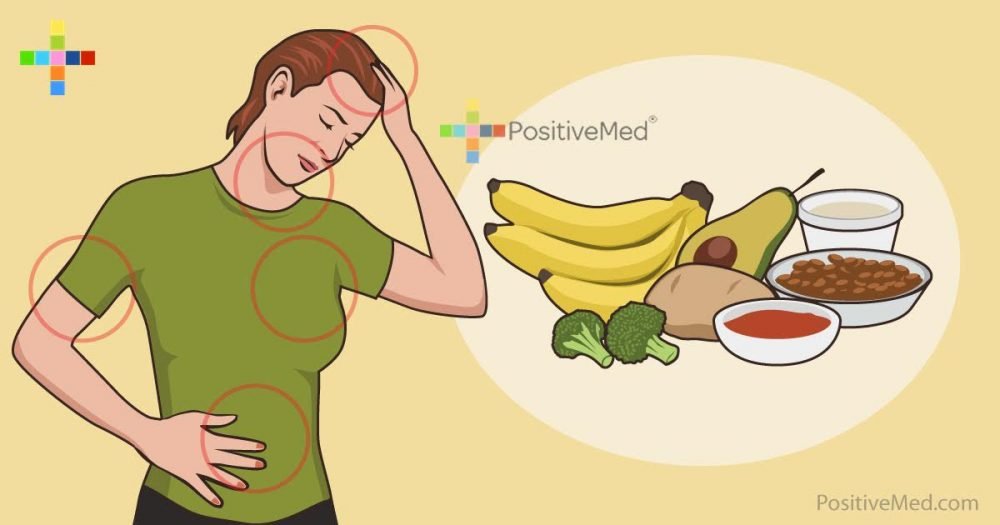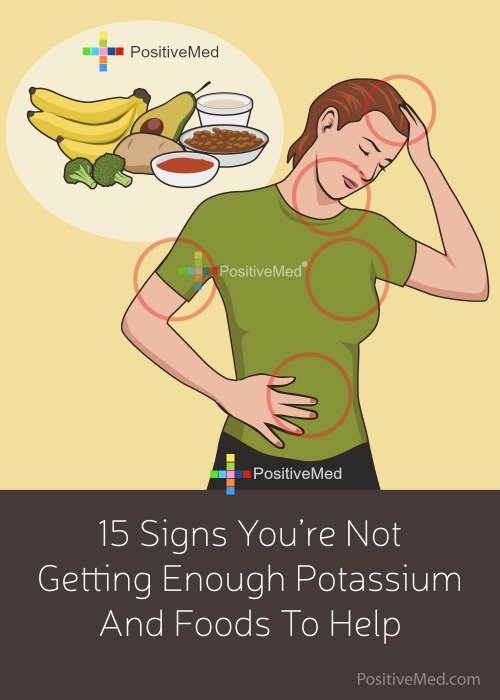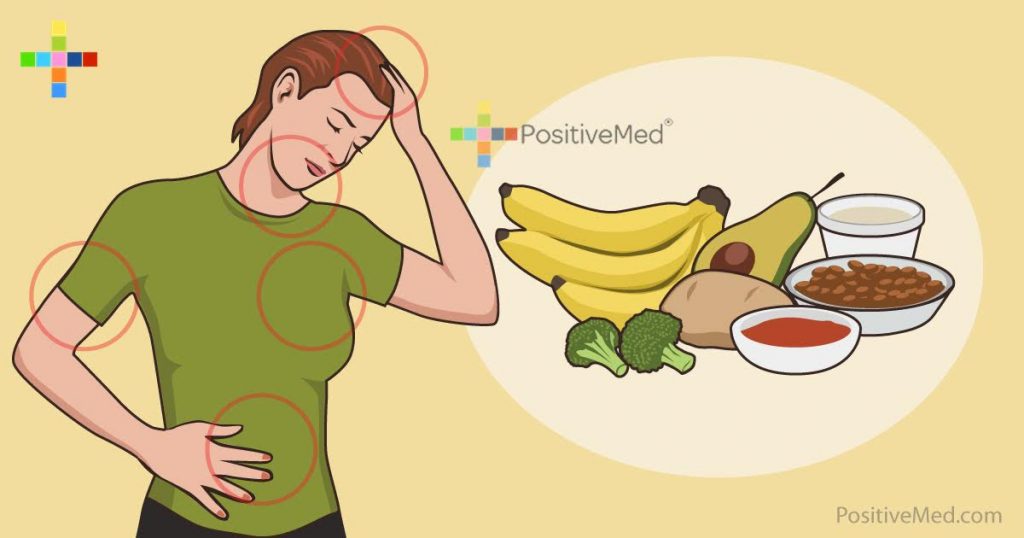15 Signs You’re Not Getting Enough Potassium And Foods To Help
[nextpage title=”…”]
Potassium is a mineral that allows the body to functional well and thrive for proper health. Hypokalemia is when there is a lack of potassium that is obtained through the diet, which can cause a number of ailments to develop over time. To determine if you have a potassium deficiency, there are several signs to look for to ensure that the kidneys, heart, and other organs continue to work well.

1. Dizziness
You may feel dizzy and close to passing out if you get up from sitting or are walking, according to womenshealthmag.com. This can be caused by a low heartbeat due to a lack of potassium.
2. Abnormal Heart Rhythms
Many individuals with potassium deficiencies notice that their heart skips a beat or can pound at high speeds during the day.
3. Fatigue
You may get seven to eight hours of sleep each night and steel feel fatigued during the day, especially after exercising.
4. Muscle Damage
The muscles in the body tend to have cramps or feel week due to low potassium levels, which can cause them to feel sore.
5. Constipation
Your digestive system can suffer from a potassium deficiency, causing you to have difficulty passing bowel movements on a daily basis.
RELATED ARTICLE: Natural Remedies for Constipation
[/nextpage] [nextpage title=”…”]
6. Muscle Spasms
Muscles require potassium to contract, which can cause spasms when they are not functioning well due to a lack of the mineral.
7. High Blood Pressure
Your blood vessels may be constricted due to a lack of potassium, which allows them to relax and will lead to normal blood pressure levels.
8. Tingling or Numbness
Tingling and numbness can occur due to nerves that are not functioning well in the body, which can feel similar to a sensation of pins and needles on the skin.
9. Bloating and Cramping
Your digestive system can be irregular and will likely lead to feeling bloated or experiencing cramps.
10. Nausea
Many adults can experience nausea if 4,700 milligrams of potassium aren’t consumed each day. This can be due to a sensitivity to sodium and due to low blood pressure.
11. Paralysis
According to livestrong.com, muscles can become limp in extreme cases of potassium deficiency. This can mainly affect the muscles in the body that are associated with breathing.
[/nextpage] [nextpage title=”…”]
12. Frequent Urination
In some cases, potassium deficiency can lead to using the restroom more frequently during the day due to excess water loss in the kidneys.
13. Irritability
One of the psychological effects of low potassium levels is becoming more irritable because potassium is crucial for proper mental health and brain function.
14. Excess Thirst
You may find yourself reaching for a glass of water more during the day due excess water loss that begins to occur in the kidneys.
15. Depression
RELATED ARTICLE: Depression Isn’t Always What You Think, 20 Subtle Signs of Depression!
Potassium deficiencies can cause bouts of depression due to a lack of brain function and activity.
Potassium deficiency is prone to occur when individuals do not maintain a nutritious diet. Experts recommend improving potassium intake by consuming foods that include bananas, pinto beans, potatoes, yogurt, and tomato sauce. Potassium supplements can also be taken each day with the supervision of a medical physician.
Pin It!

[/nextpage]






